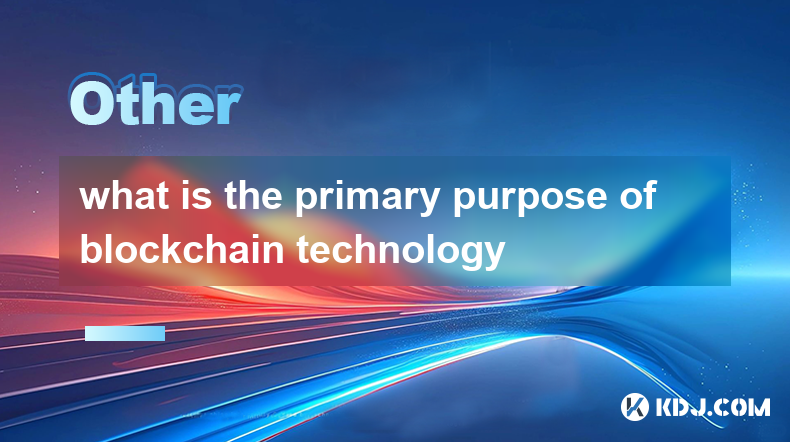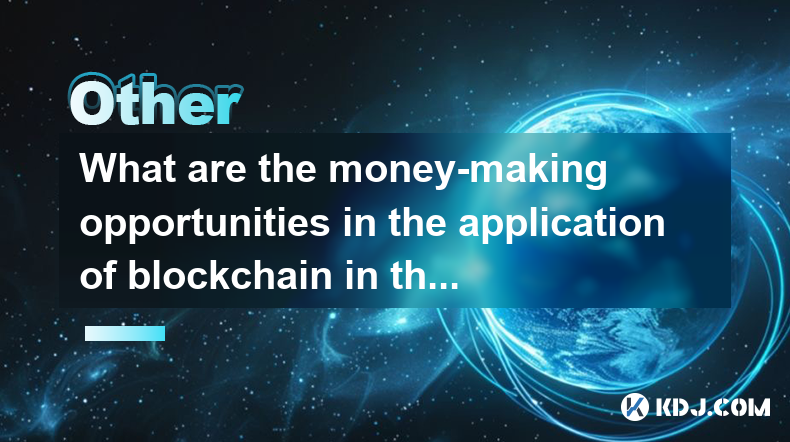-
 Bitcoin
Bitcoin $83,321.4268
1.92% -
 Ethereum
Ethereum $1,805.0367
1.69% -
 Tether USDt
Tether USDt $0.9993
-0.05% -
 XRP
XRP $2.1395
7.26% -
 BNB
BNB $594.8880
1.85% -
 Solana
Solana $119.4789
4.69% -
 USDC
USDC $0.9997
-0.04% -
 Dogecoin
Dogecoin $0.1698
7.63% -
 Cardano
Cardano $0.6677
6.83% -
 TRON
TRON $0.2403
2.57% -
 UNUS SED LEO
UNUS SED LEO $9.3931
-0.01% -
 Toncoin
Toncoin $3.4098
-4.38% -
 Chainlink
Chainlink $12.8159
2.86% -
 Stellar
Stellar $0.2605
3.26% -
 Avalanche
Avalanche $18.2959
1.70% -
 Sui
Sui $2.2472
0.47% -
 Shiba Inu
Shiba Inu $0.0...01231
1.39% -
 Hedera
Hedera $0.1660
6.00% -
 Polkadot
Polkadot $4.0976
4.31% -
 Litecoin
Litecoin $83.9330
2.88% -
 MANTRA
MANTRA $6.3850
1.06% -
 Bitcoin Cash
Bitcoin Cash $300.7858
1.83% -
 Bitget Token
Bitget Token $4.5326
1.30% -
 Dai
Dai $0.9998
-0.02% -
 Ethena USDe
Ethena USDe $0.9993
-0.03% -
 Monero
Monero $214.8497
2.22% -
 Hyperliquid
Hyperliquid $11.5517
2.18% -
 Uniswap
Uniswap $5.8645
2.37% -
 Pi
Pi $0.5305
-4.75% -
 NEAR Protocol
NEAR Protocol $2.5052
4.19%
what is the primary purpose of blockchain technology
Blockchain's core function is secure, transparent transaction recording via decentralization, cryptography, and consensus mechanisms, extending beyond cryptocurrencies to diverse sectors like supply chain and healthcare.
Mar 24, 2025 at 08:07 am

Key Points:
- Blockchain's primary purpose is to create a secure, transparent, and tamper-proof record of transactions.
- This is achieved through decentralization, cryptography, and consensus mechanisms.
- Beyond cryptocurrencies, blockchain has applications in various sectors, impacting supply chain management, healthcare, voting systems, and more.
- Understanding the core functionality of blockchain is crucial to grasping its potential and limitations.
What is the Primary Purpose of Blockchain Technology?
The primary purpose of blockchain technology is to provide a secure and transparent method for recording and verifying transactions. Unlike traditional centralized databases, which are controlled by a single entity, blockchain is decentralized. This means that the data is distributed across a network of computers, making it extremely difficult to alter or delete information. The immutability of the blockchain is a key feature that ensures data integrity.
This decentralized nature is achieved through a process called consensus. Different blockchain networks use various consensus mechanisms, such as Proof-of-Work (PoW) or Proof-of-Stake (PoS), to validate transactions and add new blocks to the chain. These mechanisms ensure that all participants agree on the state of the ledger. This collective agreement is what makes blockchain inherently secure.
Cryptography plays a vital role in securing the blockchain. Each transaction is encrypted using cryptographic hashing algorithms, creating a unique digital fingerprint. This makes it computationally infeasible to alter a transaction without detection. The cryptographic hashes link blocks together chronologically, forming an unbroken chain of data. Any attempt to tamper with a single block would break the chain and be immediately detectable by the network.
Beyond Cryptocurrencies: Applications of Blockchain Technology
While blockchain technology is often associated with cryptocurrencies like Bitcoin and Ethereum, its applications extend far beyond the realm of digital currencies. Its inherent security and transparency make it suitable for various industries and processes. Consider supply chain management, for example. Blockchain can track goods as they move through the supply chain, ensuring transparency and accountability. This can help reduce fraud and counterfeiting.
In the healthcare sector, blockchain can be used to securely store and manage patient medical records. This can improve data privacy and interoperability between different healthcare providers. Similarly, blockchain can enhance the security and transparency of voting systems, preventing fraud and manipulation. The decentralized nature of blockchain makes it a suitable technology for applications where trust and transparency are paramount.
Understanding the Core Functionality: Decentralization, Immutability, and Consensus
The core functionality of blockchain rests on three pillars: decentralization, immutability, and consensus. Decentralization ensures that no single entity controls the network, making it resistant to censorship and single points of failure. Immutability means that once data is recorded on the blockchain, it cannot be altered or deleted. This provides a high level of data integrity.
Consensus mechanisms are algorithms that ensure that all participants in the network agree on the state of the blockchain. These mechanisms are crucial for maintaining the integrity and security of the system. Different blockchains utilize different consensus mechanisms, each with its own advantages and disadvantages. The choice of consensus mechanism significantly impacts the efficiency and security of the blockchain network.
The Role of Cryptography in Blockchain Security
Cryptography is the backbone of blockchain security. Hashing algorithms create unique fingerprints for each transaction, ensuring that any alteration is easily detectable. Digital signatures are used to verify the authenticity of transactions and prevent unauthorized access. These cryptographic techniques are essential for maintaining the integrity and security of the blockchain. The strength of the cryptographic algorithms used directly impacts the security of the blockchain.
Frequently Asked Questions:
Q: Is blockchain technology only used for cryptocurrencies?
A: No, while blockchain technology gained prominence through cryptocurrencies, its applications extend to various sectors, including supply chain management, healthcare, voting systems, and digital identity management. The core principles of security and transparency make it applicable to numerous use cases.
Q: How does blockchain ensure data security?
A: Blockchain utilizes cryptography, decentralization, and consensus mechanisms to ensure data security. Cryptography ensures data integrity, decentralization prevents single points of failure, and consensus mechanisms ensure agreement on the state of the ledger among network participants.
Q: What are the different types of consensus mechanisms?
A: Several consensus mechanisms exist, including Proof-of-Work (PoW), Proof-of-Stake (PoS), Delegated Proof-of-Stake (DPoS), and Practical Byzantine Fault Tolerance (PBFT). Each mechanism has its own trade-offs regarding security, energy consumption, and transaction speed.
Q: What are the limitations of blockchain technology?
A: While offering numerous advantages, blockchain technology also faces limitations, including scalability challenges (handling a large number of transactions), regulatory uncertainty, and potential environmental concerns (especially with energy-intensive consensus mechanisms like PoW).
Q: How does immutability affect the use of blockchain?
A: Immutability, the inability to alter past records, is a double-edged sword. While ensuring data integrity, it also means correcting errors or updating information on the blockchain can be challenging or impossible, requiring careful consideration of data input accuracy before recording.
Q: What is the difference between public and private blockchains?
A: Public blockchains, like Bitcoin, are open to anyone, while private blockchains are permissioned, with access controlled by a specific entity or group. This impacts transparency and accessibility, making them suitable for different applications.
Q: How does blockchain improve transparency?
A: Blockchain's transparency stems from its distributed and immutable nature. All transactions are recorded publicly (in public blockchains) or within the permissioned network (in private blockchains), allowing for auditable and verifiable records, increasing accountability and trust.
Disclaimer:info@kdj.com
The information provided is not trading advice. kdj.com does not assume any responsibility for any investments made based on the information provided in this article. Cryptocurrencies are highly volatile and it is highly recommended that you invest with caution after thorough research!
If you believe that the content used on this website infringes your copyright, please contact us immediately (info@kdj.com) and we will delete it promptly.
- Bitlayer Bitcoin Lending: Understanding the Benefits
- 2025-04-04 23:00:12
- Bitcoin (BTC) Might Still Be in an Acceleration Phase, and at the end of this phase experience “a sharp and dramatic rally”
- 2025-04-04 23:00:12
- Solana (SOL) and Binance Coin (BNB) Market Trends and the Rising Star Coldware (COLD)
- 2025-04-04 22:55:12
- Rep. Keith Ammon Is Trying to Make New Hampshire the First State to Invest in Bitcoin
- 2025-04-04 22:55:12
- PsyFi’s Closure Could Upset the Solana Ecosystem
- 2025-04-04 22:50:11
- As of April 1, 2025, Ethereum (ETH) Finds Itself at a Crossroads
- 2025-04-04 22:50:11
Related knowledge

Is the ranking of Chinese blockchain apps real and reliable?
Apr 04,2025 at 09:01pm
The ranking of Chinese blockchain apps has become a topic of interest for many in the cryptocurrency community, as it provides insights into the popularity and adoption of blockchain technology within China. However, the reliability and authenticity of these rankings are often questioned. This article aims to delve into the factors that influence these ...

What are the future development trends of blockchain game development?
Apr 03,2025 at 05:00am
Blockchain technology has revolutionized various industries, and gaming is no exception. As we look to the future, several trends are set to shape the development of blockchain games. These trends not only promise to enhance the gaming experience but also to integrate blockchain technology more seamlessly into the gaming ecosystem. Let's explore these t...

What are the maintenance costs of blockchain system development?
Apr 03,2025 at 06:07pm
The maintenance costs of blockchain system development are multifaceted and depend on various factors. These costs can include technical maintenance, security updates, infrastructure expenses, and personnel costs. Understanding these elements is crucial for anyone planning to develop or maintain a blockchain system. Technical MaintenanceTechnical mainte...

What are the money-making models of blockchain games?
Apr 04,2025 at 02:00pm
Blockchain games have emerged as a revolutionary way for players to earn real money while enjoying their favorite pastime. These games leverage the power of blockchain technology to create unique money-making models that benefit both the players and the developers. In this article, we will explore the various money-making models of blockchain games and ...

What are the money-making opportunities in the application of blockchain in the medical industry?
Apr 03,2025 at 03:35am
The integration of blockchain technology into the medical industry presents a myriad of money-making opportunities that can revolutionize healthcare systems. Blockchain's inherent characteristics, such as transparency, security, and immutability, make it an ideal solution for various medical applications. By leveraging blockchain, companies can develop ...

What are the money-making opportunities when blockchain and artificial intelligence are combined?
Apr 04,2025 at 01:28am
The convergence of blockchain and artificial intelligence (AI) presents a myriad of money-making opportunities within the cryptocurrency circle. This fusion leverages the decentralized and secure nature of blockchain with the analytical prowess of AI, creating innovative solutions and platforms that can generate significant revenue. From enhancing tradi...

Is the ranking of Chinese blockchain apps real and reliable?
Apr 04,2025 at 09:01pm
The ranking of Chinese blockchain apps has become a topic of interest for many in the cryptocurrency community, as it provides insights into the popularity and adoption of blockchain technology within China. However, the reliability and authenticity of these rankings are often questioned. This article aims to delve into the factors that influence these ...

What are the future development trends of blockchain game development?
Apr 03,2025 at 05:00am
Blockchain technology has revolutionized various industries, and gaming is no exception. As we look to the future, several trends are set to shape the development of blockchain games. These trends not only promise to enhance the gaming experience but also to integrate blockchain technology more seamlessly into the gaming ecosystem. Let's explore these t...

What are the maintenance costs of blockchain system development?
Apr 03,2025 at 06:07pm
The maintenance costs of blockchain system development are multifaceted and depend on various factors. These costs can include technical maintenance, security updates, infrastructure expenses, and personnel costs. Understanding these elements is crucial for anyone planning to develop or maintain a blockchain system. Technical MaintenanceTechnical mainte...

What are the money-making models of blockchain games?
Apr 04,2025 at 02:00pm
Blockchain games have emerged as a revolutionary way for players to earn real money while enjoying their favorite pastime. These games leverage the power of blockchain technology to create unique money-making models that benefit both the players and the developers. In this article, we will explore the various money-making models of blockchain games and ...

What are the money-making opportunities in the application of blockchain in the medical industry?
Apr 03,2025 at 03:35am
The integration of blockchain technology into the medical industry presents a myriad of money-making opportunities that can revolutionize healthcare systems. Blockchain's inherent characteristics, such as transparency, security, and immutability, make it an ideal solution for various medical applications. By leveraging blockchain, companies can develop ...

What are the money-making opportunities when blockchain and artificial intelligence are combined?
Apr 04,2025 at 01:28am
The convergence of blockchain and artificial intelligence (AI) presents a myriad of money-making opportunities within the cryptocurrency circle. This fusion leverages the decentralized and secure nature of blockchain with the analytical prowess of AI, creating innovative solutions and platforms that can generate significant revenue. From enhancing tradi...
See all articles




















































































